‘Mix of memoir and illustrations’
Scrappy Jack: 100 Years of Hardship, Laughter, and Recycling
by Joan Steacy
Vancouver: Midtown Press, 2023
$24.95 / 9781988242521
Reviewed by Valerie Green
*
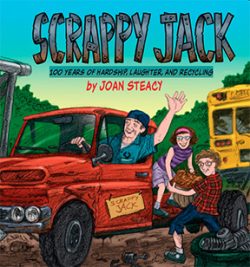
Scrappy Jack by Joan Steacy is a delightful mix of memoir and illustrations aimed at both adult and juvenile readers.
It is the story of the author’s father Jack who was born in London, England, in 1906 to a middle-class family. As a young boy he loved to build anything on wheels and his toys such as a Meccano construction set reflected that. He lived a good life and even had a governess who looked after him and his two younger brothers.
When Jack was six, things changed radically. His father’s business failed, and his parents could no longer buy toys for Jack and his siblings or support the family in England. Jack’s father decided to move the family to another country and, like many others at that time, he chose Canada as their destination.
The family emigrated to Hamilton in Ontario in 1912. While aboard the ship taking them there, Jack was allowed to visit the engine room and was fascinated by all that he saw which reminded him of the Meccano set he had once owned. Thus began his lifelong love of building things from scrap.
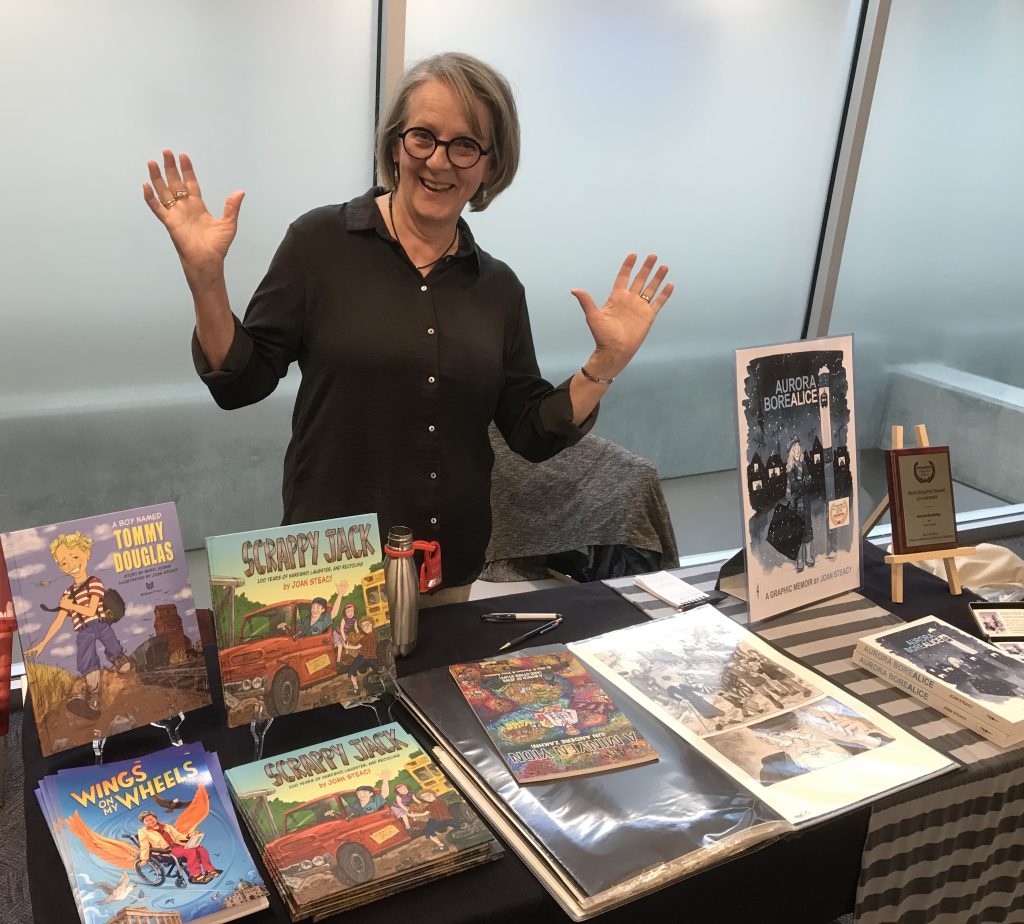
Life in Hamilton, an industrial town, was also not easy for the family. It was difficult to make a decent living. One day young Jack saw a Meccano set in a window at Eaton’s store but knew the family could not afford such luxury. It was hard enough to pay their rent and buy food and clothing.
As things grew worse, life became even tougher for the family and Jack’s parents were forced to place Jack and one of his brothers in an orphanage so that they would at least receive shelter and food. This was a dark period in Jack’s life and a few years went by until his parents could bring him and his brother home again.
The story then jumps to all that Jack witnessed after the end of the First World War with the return of soldiers, many of whom were in wheelchairs and had lost a limb. Throughout all those years Jack, who had initially found reading difficult, soon overcame this problem and became obsessed with books. He visited the Hamilton library frequently and explored reading material such as Popular Mechanics.
As Jack grew into manhood, it was obvious he had a mischievous streak and often was the leader in pranks that would get him and his brothers into trouble. His favorite expressions were “the Operator is in control” and “So, that’s that!”
Jack’s adventures as a young man leading up to the Second World War fill the next pages of the book with short prose and amazing illustrations—riding the rails as a hard-working hobo, stopping at farms along the way to find jobs, and eventually the end of the Depression years in 1939 and the beginning of war. Jack was not accepted to serve in the military as he was considered “unhealthy” which he found very odd, and he vowed he would outlive everyone!
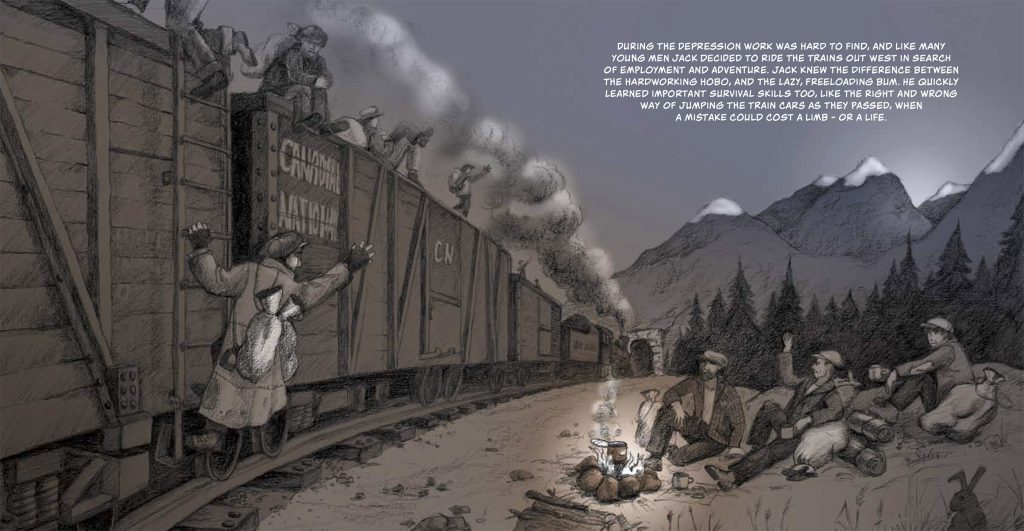
Now the steel companies wanted scrap metal to build machinery for war. Jack found a job working at the Westinghouse Factory in Hamilton on the munitions assembly line helping in the war effort to turn old scrap metal into artillery. It made him more aware of the immense value of scrap.
This awareness carried Jack into his life after the war when he and his wife raised four children on land he had bought north of Hamilton. He was the last person to get a scrap metal license in the province. What other people might consider junk, to Jack scrap meant money and he quickly earned the title “Scrappy Jack.”
He taught his children the difference between metals—copper, aluminum, brass, and iron—and their job became sorting the scrap metal to be recycled. His innovations and business sense made a good living for his family in the years to come.
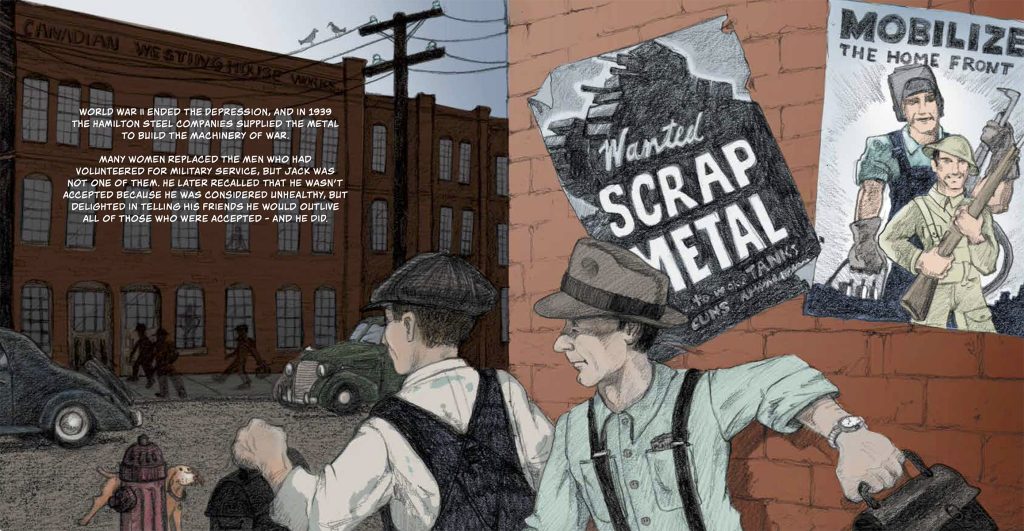
With an additional mechanic’s license, he was able to fix old cars “which stacked up like cordwood,” on their property until there was no more space.
Jack never really retired from the scrap metal business although he did slow down slightly in his seventies. He was well-known in the area and lived in the same house for sixty years that “had as much character as he did.”
Jack and his wife Emily eventually left their old house and settled into a caring nursing home that offered Jack a wheelchair which he preferred pushing around rather than sitting in! He lived to the ripe old age of 100 and his years of “hardship, laughter, and recycling” have been delightfully told by his daughter in this little book about a man simply known as Scrappy Jack.
Author and illustrator Joan Steacy grew up in Ontario but from 2012 until 2020 she taught at Camosun College in Victoria, where she had created a comics and graphic novels program.
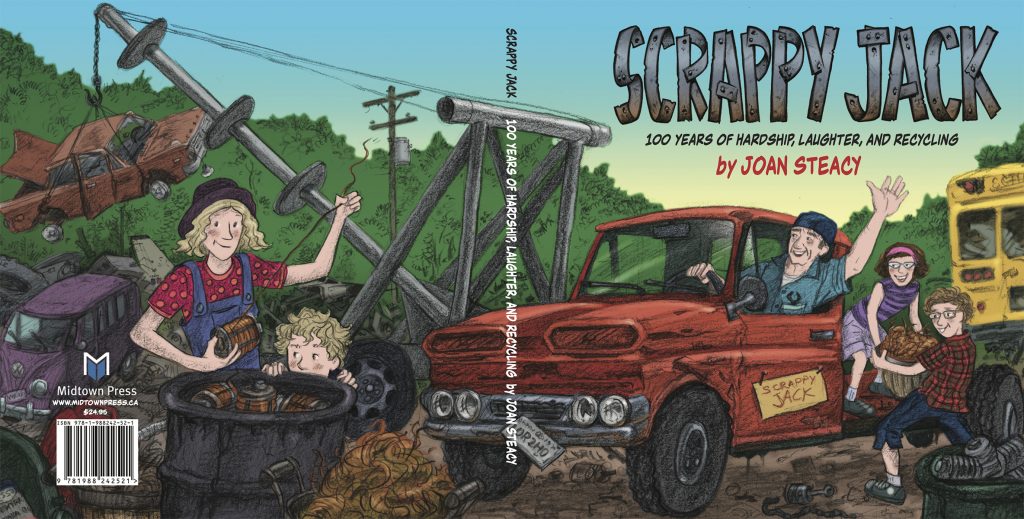
*

Valerie Green was born and educated in England, where she studied journalism and law. Her passion was always writing from the moment she first held a pen. After working at the world-famous Foyles Books in London (followed by a brief stint with MI5 and legal firms), she moved to Canada in 1968 and embarked on a long career as a freelance writer, columnist, and author of over twenty nonfiction historical and true-crime books. Hancock House recently released Tomorrow, the final volume of The McBride Chronicles (after Providence, Destiny, and Legacy). Now semi-retired (although writers never really retire!) she enjoys taking short road trips around BC with her husband, watching their two beloved grandsons grow up and, of course, writing. [Editor’s note: Valerie Green has recently reviewed books by R.W. Butler, John D’Eathe, M.A.C Farrant, Olga Campbell, Beka Shane Denter, and Kate MacIntosh for The British Columbia Review.]
*
The British Columbia Review
Interim Editors, 2023-26: Trevor Marc Hughes (non-fiction), Brett Josef Grubisic (fiction)
Publisher: Richard Mackie
Formerly The Ormsby Review, The British Columbia Review is an on-line book review and journal service for BC writers and readers. The Advisory Board now consists of Jean Barman, Wade Davis, Robin Fisher, Barry Gough, Hugh Johnston, Kathy Mezei, Patricia Roy, and Graeme Wynn. Provincial Government Patron (since September 2018): Creative BC. Honorary Patron: Yosef Wosk. Scholarly Patron: SFU Graduate Liberal Studies. The British Columbia Review was founded in 2016 by Richard Mackie and Alan Twigg.
“Only connect.” – E.M. Forster